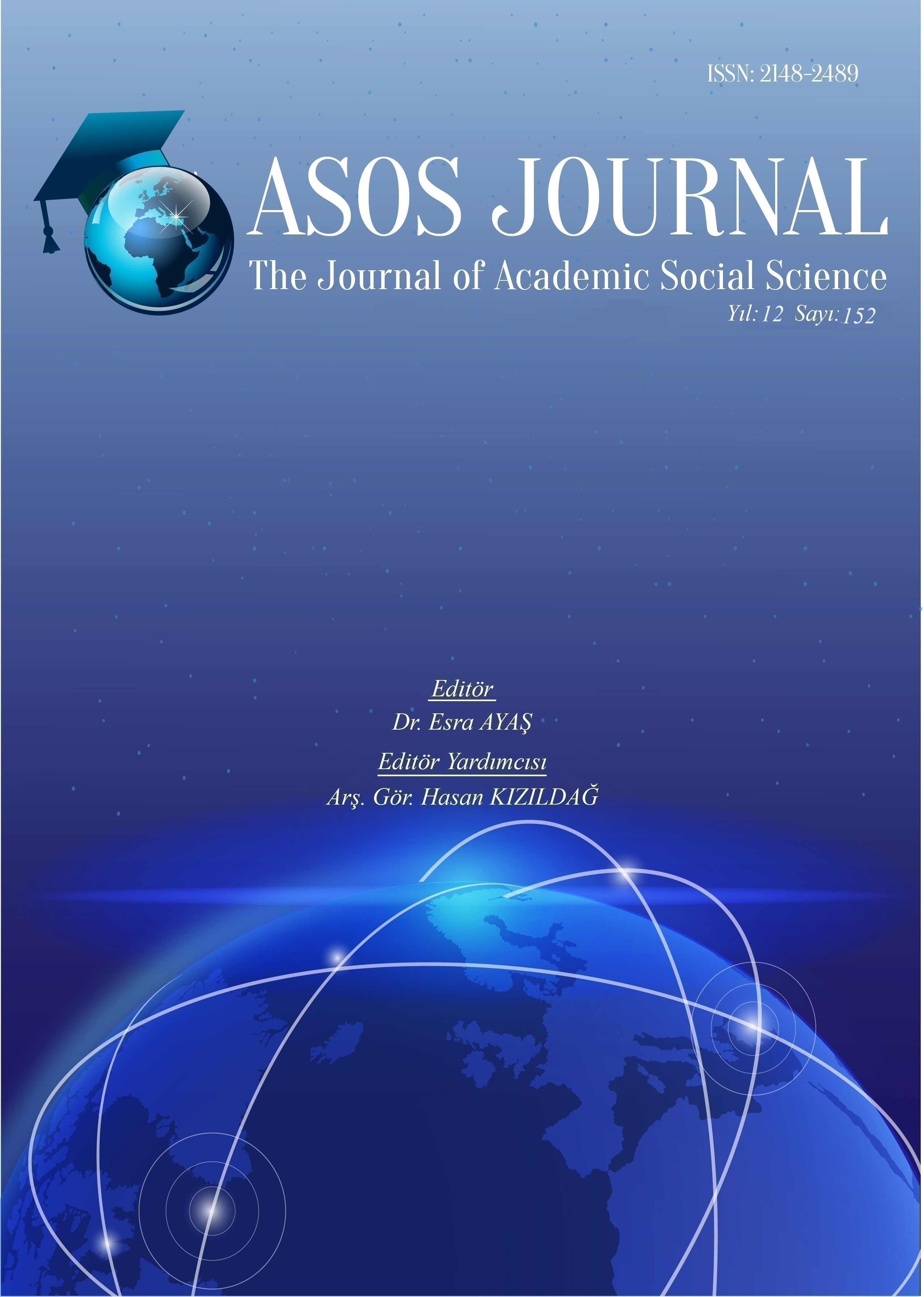Author :
Abstract
Bu çalışmada, Türkçe öğretmenlerinin Türkçe dersi konuşma becerisi sınavında kullanılan ölçekler ile ilgili görüşlerini ortaya koymak amaçlanmıştır. Çalışma nitel bir araştırma olup yarı yapılandırılmış ve içerik analizi yönteminin kullanıldığı betimsel bir çalışmadır. Araştırmanın verileri 2023-2024 eğitim öğretim döneminde Milli Eğitim Bakanlığı devlet ve özel eğitim kurumlarında görev yapmakta olan 128 Türkçe öğretmeninin konuşma becerisi sınavında kullandıkları konuşma ölçekleri ile ilgili görüşlerinin sekiz ana başlıkta hazırlanan Google anket sorularına verdikleri cevaplardan elde edilmiştir. Araştırmanın bulgularına göre araştırmaya dahil olan Türkçe öğretmenlerinin %93 oranında konuşma sınavında ölçek kullandığı bulgusuna ulaşılmıştır. Öğretmenlerin kullandıkları ölçekleri nasıl elde ettikleri ile ilgili verdikleri cevaplarda; internetten indirdikleri ölçekleri (%58) ve bulundukları okuldaki zümreleriyle birlikte geliştirdikleri ölçekleri (%28) kullanmayı tercih ettikleri görülmüştür. Türkçe öğretmenlerinin bulundukları okullardaki zümre öğretmenleriyle aynı ölçeği kullanmayı tercih edenler %60 oranındayken, bireysel ölçek kullanan öğretmenler %40’lık orana sahiptir. Öğretmenlerin, konuşma becerisi sınavını değerlendirmek için hangi zaman dilimini kullandıkları sorusuna %87 oranında konuşma süresince değerlendirme yaptıkları cevabını vermişlerdir. Konuşmanın içeriğine yönelik öğrencilere soru sorup sorulmadığı konusunda öğretmenler %53 oranında soru sorduklarını, %47 oranında ise anlamaya dayalı soru sormadıkları anlaşılmaktadır. Öğretmenler öğrencilere konuşma konusu verme noktasında farklı davranışlar sergiledikleri görülmüştür. Konuşma sınavını değerlendirirken kullanılan ölçütlerden en fazla konuşmaya uygun ifadelerle başlama ve konuşmada beden dilini etkili kullanma seçeneklerinin cevaplandığı görülmektedir.
Keywords
Abstract
In this study, it is aimed to reveal the opinions of Turkish teachers about the scales used in the Turkish speaking skill exam. The study is a qualitative research and is a semi-structured and descriptive study using the content analysis method. The data of the research were obtained from the answers of 128 Turkish teachers working in public and private educational institutions of the Ministry of National Education in the 2023-2024 academic year, regarding their opinions about the speaking scales they used in the speaking skill exam, to the Google survey questions prepared under eight main headings. According to the findings of the research, it was found that 93% of the Turkish teachers included in the research used scales in the speaking exam. In the answers given by the teachers about how they obtained the scales they used; It was observed that they preferred to use the scales they downloaded from the internet (58%) and the scales they developed together with their groups at their school (28%). While the rate of Turkish teachers who prefer to use the same scale as the group teachers in the schools where they work is 60%, the rate of teachers who use individual scales is 40%. When asked which time period teachers use to evaluate the speaking skill exam, 87% answered that they evaluate during the speaking period. It is understood that teachers ask questions about the content of the speech at a rate of 53%, and 47% do not ask questions based on understanding. It has been observed that teachers exhibit different behaviors when it comes to giving topics for conversation to students. Among the criteria used when evaluating the speaking test, it is seen that the options of starting the speech with appropriate expressions and using body language effectively in speaking are answered the most.





